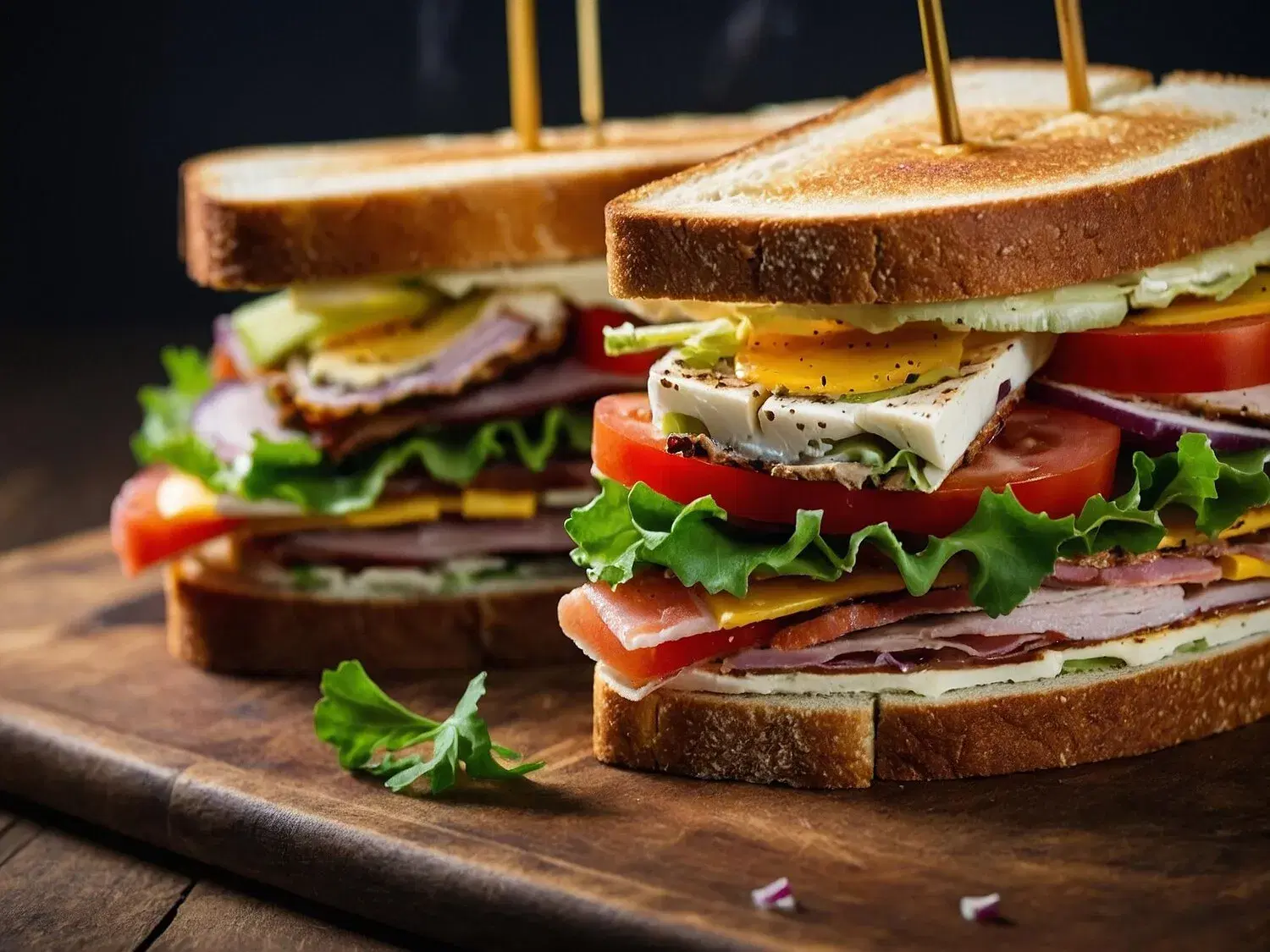
Sandwiches
Selection of sandwiches served with sides.
Nutrition Facts
* The % Daily Value (DV) tells you how much a nutrient in a serving of food contributes to a daily diet. 2,000 calories a day is used for general nutrition advice.
Premium Feature
Premium Feature
The concept of placing food between slices of bread is ancient, but the modern sandwich is generally attributed to John Montagu, 4th Earl of Sandwich, in 1762. He allegedly requested meat served between two slices of bread to avoid interrupting a gambling game. However, similar practices existed before, indicating an evolutionary rather than singular origin.
Premium Feature
Sandwiches are ubiquitous in many cultures, offering a portable and convenient meal option suitable for diverse occasions, from quick lunches to elaborate picnics. Their versatility makes them adaptable to various dietary needs and cultural preferences.
Lunch Culture
Sandwiches are a staple of lunchboxes and office lunches around the world. Their portability and ease of preparation make them an ideal midday meal.
Picnics and Outdoor Dining
Sandwiches are frequently enjoyed during picnics and outdoor events. They are easily transported and consumed without utensils.
Regional Variations
Many regions have their own unique sandwich creations, reflecting local ingredients and culinary traditions. Examples include the Cuban sandwich, the Philly cheesesteak, and the po' boy.
Street Food
Sandwiches are frequently sold as street food, offering quick and affordable meals to people on the go. They are easily customizable, making them a convenient option for diverse tastes and preferences.
Premium Feature
Sandwiches offer a diverse spectrum of flavors dependent entirely on the fillings used. Freshly baked bread contributes a comforting base, while fillings can range from savory meats and cheeses to sweet jams and spreads.
The flavor profile is dictated by the filling. Savory options might include roast beef with horseradish (peppery, umami), ham and cheese (salty, creamy), or tuna salad (fishy, tangy). Sweet options encompass peanut butter and jelly (sweet, nutty), or Nutella (chocolate, hazelnut). Bread type also significantly influences the overall taste – sourdough adds tang, rye provides earthiness, and multigrain contributes nutty notes.
Premium Feature
Bread Selection
Choose bread that complements the fillings. Sturdy bread is ideal for wet fillings, while softer bread works well with delicate ingredients.
Layering
Layer ingredients strategically to prevent soggy bread. Place lettuce or other moisture-resistant ingredients next to the bread to act as a barrier.
Condiment Application
Spread condiments evenly to ensure balanced flavor throughout the sandwich. Avoid over-applying condiments, as this can make the sandwich soggy.
Freshness
Use fresh ingredients for optimal flavor and texture. Freshly baked bread is always preferable.
Cutting Techniques
Consider the cutting style of the sandwich. A diagonal cut can make a more visually appealing presentation and potentially ease the eating experience.
Premium Feature
Explore additional Lunch/Dinner dishes and restaurants
Explore Lunch/DinnerDiscover top dining spots and culinary experiences in Chula Vista.
Explore Chula VistaLearn more about the food culture, restaurant scene, and culinary heritage of United States.
Explore United States